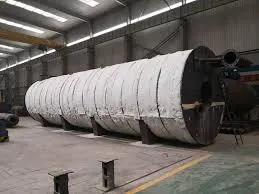Automatic Boiler Compliance with CE Certification Standards for Enhanced Safety and Efficiency
Understanding CE Certification for Automatic Boilers
CE certification is a significant aspect of product compliance in the European market, especially for heating appliances such as automatic boilers. CE stands for Conformité Européenne, which translates to European Conformity. It indicates that a product meets the essential health, safety, and environmental protection requirements set by the European Union (EU). For manufacturers and distributors, obtaining CE certification for automatic boilers is not just a legal obligation but also a crucial step in ensuring product acceptance in European markets.
The Importance of CE Certification
Automatic boilers play a vital role in residential and industrial heating systems. Their efficient operation is essential for energy conservation and sustainability. However, without CE certification, these products cannot legally be sold or operated within the EU. The certification process helps ensure that automatic boilers are designed and manufactured to high standards to provide safe and reliable performance.
1. Safety and Reliability Automatic boilers must adhere to strict safety procedures to prevent hazards such as explosions, gas leaks, and carbon monoxide emissions. CE certification includes rigorous testing protocols that assess the design and functionality of the boiler in real-world scenarios, ensuring that it operates safely under all conditions.
2. Environmental Compliance Modern automatic boilers are also required to meet environmental standards aimed at reducing carbon emissions and promoting energy efficiency. By obtaining CE certification, manufacturers demonstrate their commitment to environmental responsibility, thereby contributing to the EU's climate goals.
3. Market Access CE marking is a passport for products in the European Economic Area (EEA). It makes it easier for manufacturers to access European markets while enhancing consumer confidence. In turn, consumers are often more willing to purchase products that display the CE mark, knowing that they have been tested and meet EU standards.
The CE Certification Process for Automatic Boilers
ce certification automatic boiler

The process of obtaining CE certification for automatic boilers is systematic and can be broken down into several key steps
1. Product Assessment Manufacturers must perform a risk assessment to understand the potential hazards associated with their automatic boilers. This involves analyzing the design, construction, and intended use of the product.
2. Standards Compliance Automatic boilers must comply with relevant European standards, such as the EN 303-1 for boilers burning gaseous fuels or EN 304 for solid fuel boilers. Manufacturers must ensure that their products meet these standards before proceeding.
3. Testing and Evaluation Once the preliminary assessments are completed, the product undergoes testing. This may involve third-party testing laboratories that conduct rigorous evaluations to confirm the boiler's safety and performance specifications.
4. Documentation and Technical File Manufacturers must compile comprehensive documentation, including test reports and a technical file that details how the product meets the necessary standards. This file may also contain user manuals and installation guides.
5. Declaration of Conformity Finally, manufacturers must issue a Declaration of Conformity, certifying that their product complies with all relevant EU legislation. Once all these steps are complete, the CE mark can be affixed to the boiler.
Conclusion
In conclusion, CE certification for automatic boilers is an essential criterion for market entry and product safety within the European Union. It not only ensures that boilers meet stringent safety and environmental standards but also boosts consumer confidence. Additionally, it provides manufacturers with a competitive edge in a highly regulated market. As the demand for efficient heating solutions continues to grow, CE certification will remain a pivotal requirement for manufacturers seeking to deliver high-quality automatic boilers to the EU market.
-
Top Electric Steam Boiler Manufacturers - High Efficiency SolutionsNewsJul.30,2025
-
Top Electric Steam Boiler Manufacturers – Efficient Industrial SolutionsNewsJul.29,2025
-
Top Electric Steam Boiler Manufacturers | Reliable Industrial SolutionsNewsJul.29,2025
-
OEM Steam Boiler Solutions for Custom Needs | High Efficiency & VersatilityNewsJul.29,2025
-
High-Efficiency Thermal Oil Boiler for Industrial Heating SolutionsNewsJul.29,2025
-
Top Electric Steam Boiler Manufacturers for Industrial EfficiencyNewsJul.28,2025

